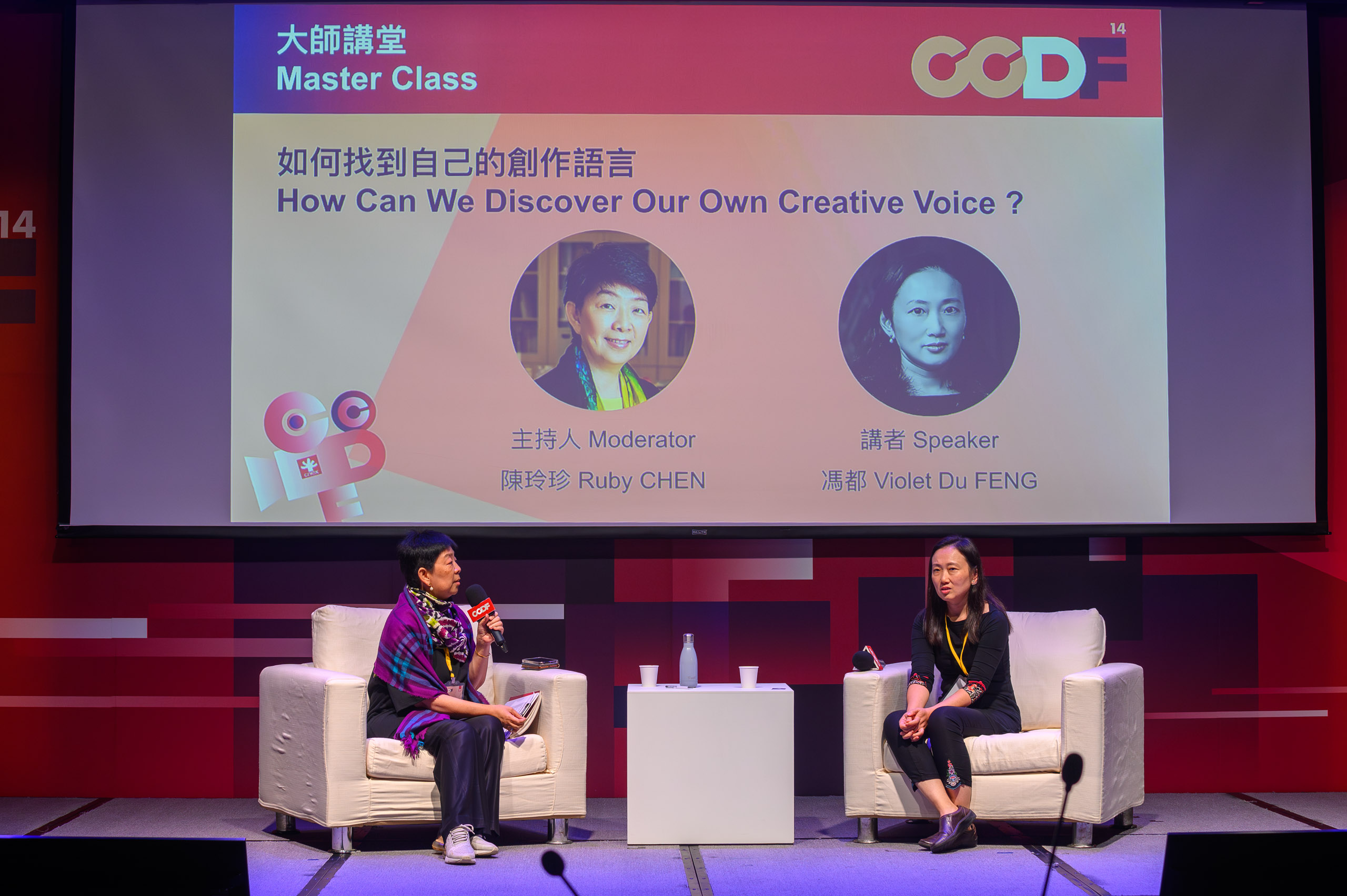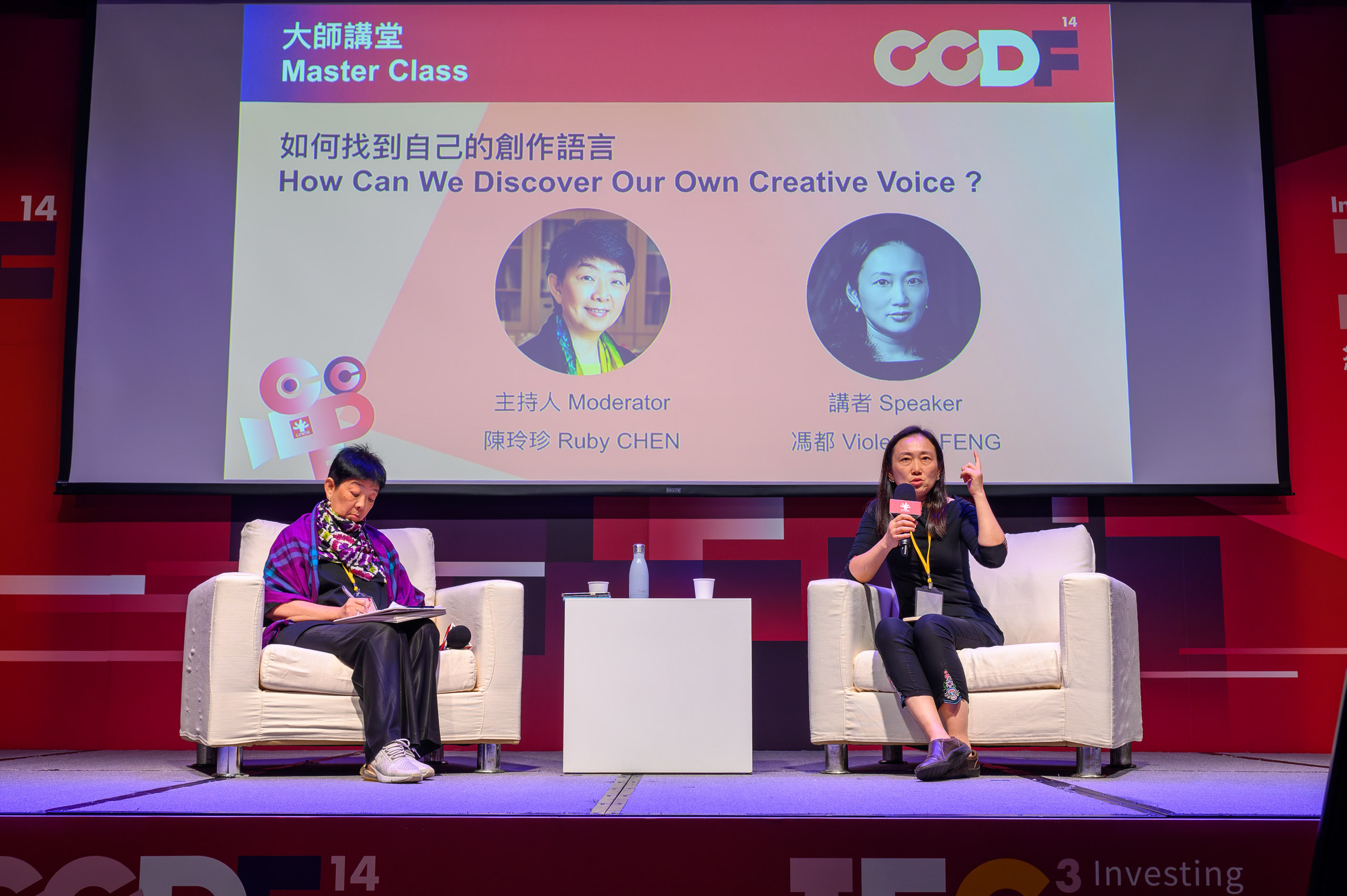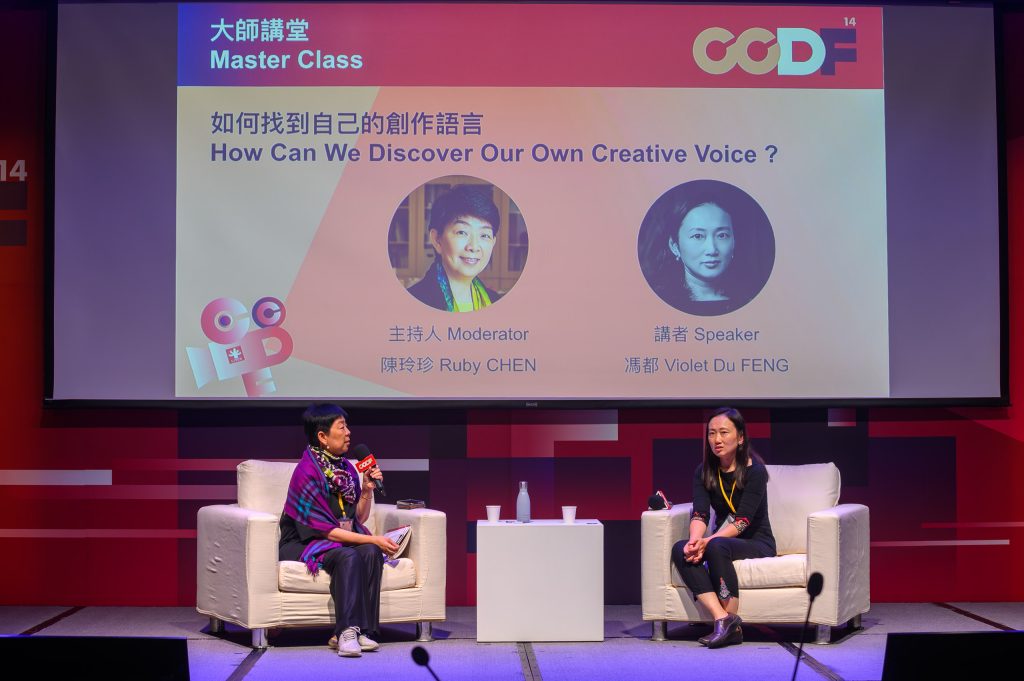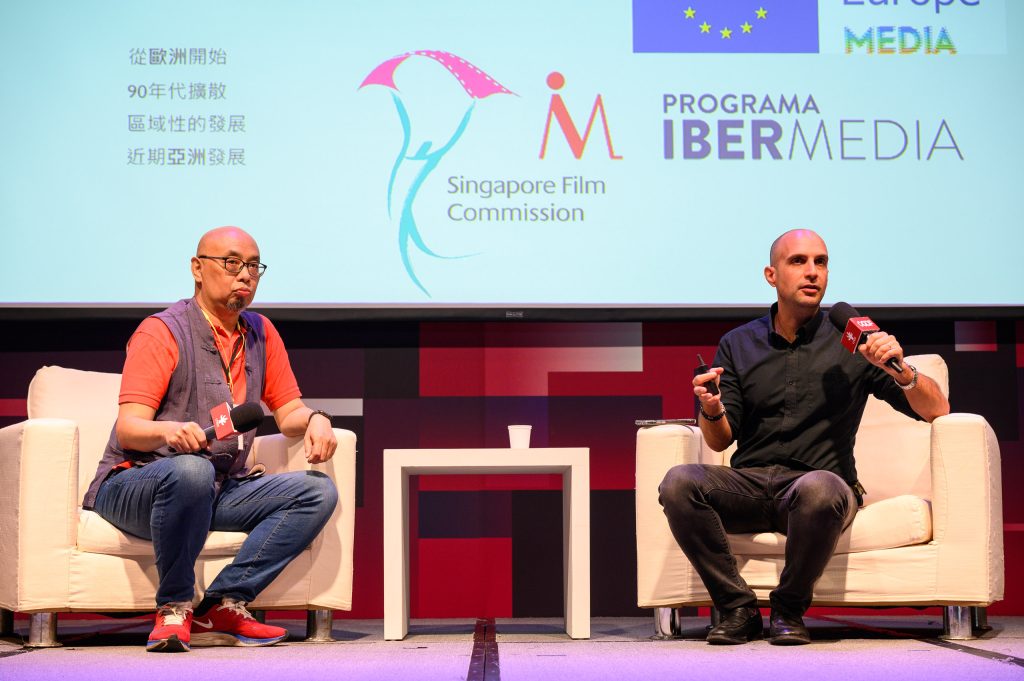How Can We Discover Our Own Creative Voice? (CCDF-14 Master Class)
Moderator: Ruby Chen -Co-Founder and CEO, CNEX Foundation
Speaker: Violet Du Feng -Director, Producer
The film “Hidden Letters” directed by Violet Du Feng, which explores the unique Chinese writing system “Nüshu” used by traditional Chinese women, has made it to the top fifteen finalists for Best Documentary at the 95th Academy Awards. Violet Du Feng was invited as a mentor at CCDF-14 and her film “Hidden Letters” was screened at the event. After the screening, she shared her experiences and insights on documentary filmmaking with a focus on “How Can We Discover Our Own Creative Voice”.

In the master class, Feng emphasized the importance of choosing collaborative partners and explored the core values of perspective and expression for creators. Feng believes that a unique perspective and expressions that resonate universally are key to the success of documentaries.
In the master class, Feng delved into the challenges and experiences of female directors in the creative process. She pointed out that a skeptical attitude prompts creators to reflect on their work’s societal positioning, which is healthy and necessary. She emphasized the balance between artistic and commercial considerations, ensuring both the artistic value of the work and its market acceptability. Feng shared insights into the differences between Eastern and Western narrative styles and market demands, highlighting the need for Chinese creators to cater to both domestic and international audiences, an ongoing exploration process.
Additionally, the master class discussed finding a balance between internal and external perspectives, crucial for the authenticity and presentation of values in films. Feng stressed the authenticity of documentaries and their contract with the audience, meaning films are based on real events rather than fiction. She argued that works should challenge audience values rather than reinforce existing universal values.

Violet Du Feng also discussed the importance of complexity in simple narratives and the necessity of finding one’s attitude in conflicts. She expressed her hope that her works could be screened domestically and internationally, inviting more viewers for supervision and criticism to drive social progress. She underscored the importance of focusing on creation, inspired by Wang Nanhu, advocating for full dedication to filmmaking rather than part-time pursuits. She noted that with enhanced skills, financial rewards naturally follow.
For recent graduates, Violet Du Feng advised against starting with assistant roles and instead encouraged direct involvement in film production to enhance skills effectively. She viewed practical filmmaking as the most effective way to learn and grow.
The forum also addressed the challenge of balancing creative issues within the context of Chinese and Western cultures. Feng shared her experience in finding a balance between these cultures, emphasizing the importance of using her own perspective to tell Chinese stories rather than conforming to Western or mainstream Chinese contexts.
Lastly, Violet Du Feng suggested allocating time and energy reasonably for managing multiple projects simultaneously, highlighting the importance of balancing life and work. She concluded that focus, practice, and growth are key to successful filmmaking, encouraging creators to present complexity in simple narratives, challenge existing values, and promote societal progress.

